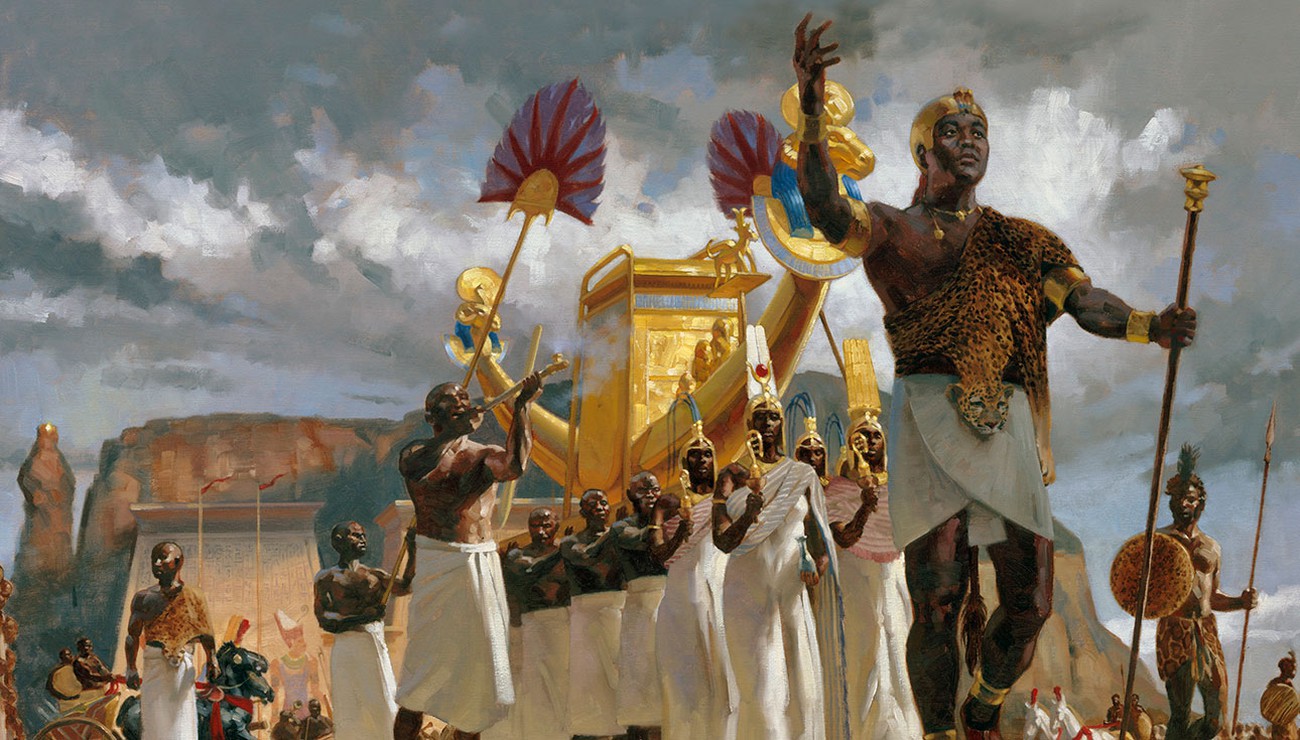The ancient Egyptians were a deeply religious people, and the gods played a significant role in their culture. Their beliefs in divine beings and creation mythology were central to their understanding of the world and their place in it. In this article, we will explore the mythology of the Egyptian gods, their worship, and their enduring legacy.
Creation Mythology According to the Egyptian creation myth, the universe was created by the god Atum. Atum emerged from the primordial waters of chaos and created the first landmass, the ben-ben stone, upon which he stood. From the ben-ben stone, he created Shu (air) and Tefnut (moisture), who gave birth to Geb (earth) and Nut (sky). Geb and Nut had four children: Osiris, Isis, Set, and Nephthys. These four siblings would become some of the most important gods in the Egyptian pantheon.
Major Egyptian Gods Osiris, the god of the dead and the afterlife, was one of the most significant gods in Egyptian mythology. He was the first pharaoh and ruled over the land until his brother Set killed him and scattered his body parts throughout Egypt. His wife, Isis, gathered the pieces and reassembled him, restoring him to life. Osiris then became the ruler of the underworld, where he judged the souls of the dead.
Isis was the goddess of magic, motherhood, and fertility. She was the sister and wife of Osiris and the mother of Horus, the god of the sky. Isis was a popular goddess among the ancient Egyptians, and many temples were dedicated to her worship.
Horus was the son of Osiris and Isis and the god of the sky. He was often depicted as a falcon or a falcon-headed man and was associated with the pharaoh, who was believed to be his earthly counterpart.
Anubis was the god of mummification and the afterlife. He was depicted as a jackal or a jackal-headed man and was responsible for embalming the dead and leading them to the underworld.
Thoth was the god of writing, wisdom, and knowledge. He was often depicted as an ibis or a baboon and was believed to have created writing and the hieroglyphs.
Worship and Rituals The ancient Egyptians believed that the gods needed to be worshipped and appeased to maintain their favor. Temples were built throughout Egypt, and priests were responsible for performing the necessary rituals and ceremonies. Offerings of food, drink, and incense were presented to the gods, and prayers and hymns were recited.
The pharaoh was believed to be the intermediary between the gods and the people and was responsible for maintaining Ma’at, the concept of balance and order in the universe. The pharaoh was seen as a living god and was expected to perform rituals and ceremonies to ensure the gods’ favor.
Legacy and Influence The mythology of the Egyptian gods has had a significant impact on later cultures, including the Greeks and Romans. The Greeks identified many of their gods with Egyptian deities, such as Amun with Zeus and Isis with Demeter. The Romans also adopted many Egyptian gods and incorporated them into their own pantheon.
The legacy of Egyptian gods and mythology can still be seen in modern culture. Movies and literature often draw inspiration from Egyptian mythology, and many people are fascinated by the mysteries and secrets of ancient Egypt.
Conclusion The mythology of the Egyptian gods is a fascinating and complex system of beliefs that has captured the imagination of people for thousands of years. The gods were central to the ancient Egyptians’ understanding of the world and their place in it, and their worship and rituals were an essential part

kjtay5
c0n8fp
qzv9o5